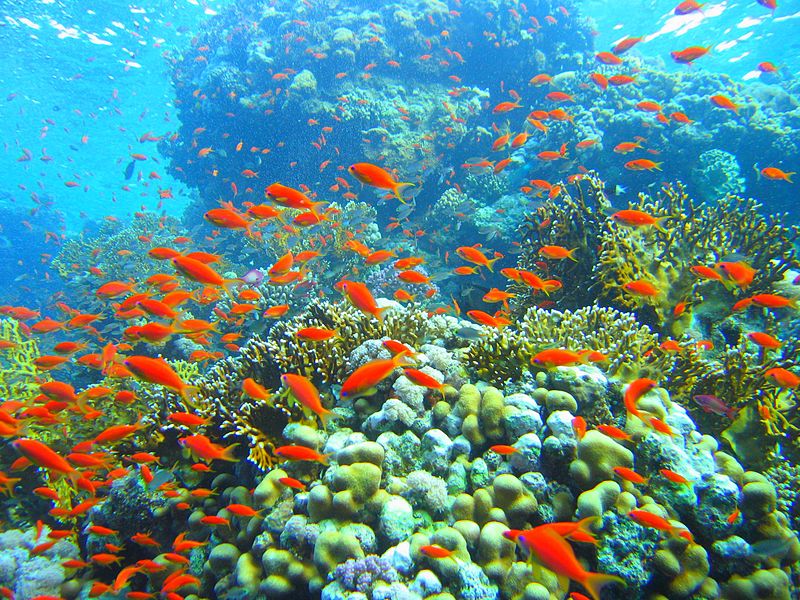Sunday Times 2
Climate change is damaging fish brains and causing them to lose their survival instinct
Fish are losing their survival instinct as the world’s oceans become more acidic because of climate change, researchers have claimed.
The study confirms laboratory experiments showing that the behavior of reef fishes can be seriously affected by increased carbon dioxide concentrations in the ocean. Carbon dioxide released into the atmosphere is absorbed into ocean waters, where it dissolves and lowers the pH of the water.

The study confirms laboratory experiments showing that the behaviour of reef fishes can be seriously affected by increased carbon dioxide concentrations in the ocean.
The new study is the first to analyse the sensory impairment of fish from CO2 seeps, where pH is similar to what climate models forecast for surface waters by the turn of the century.
‘These results verify our laboratory findings,’ said Danielle Dixson, an assistant professor in the School of Biology at the Georgia Institute of Technology in Atlanta.
‘There’s no difference between the fish treated with CO2 in the lab in tests for chemical senses versus the fish we caught and tested from the CO2 reef.’
The research was published in the April 13 Advance Online Publication of the journal Nature Climate Change.
The pH of normal ocean surface water is around 8.14.
The new study examined fish from so-called bubble reefs at a natural CO2 seep in Papua New Guinea, where the pH is 7.8 on average. With today’s greenhouse gas emissions, climate models forecast pH 7.8 for ocean surface waters by 2100, according to theInter-governmental Panel on Climate Change (IPCC).
‘We were able to test long-term realistic effects in this environment,’ Dixson said.
‘One problem with ocean acidification research is that it’s all laboratory based, or you’re testing something that’s going to happen in a 100 years with fish that are from the present day, which is not actually accurate.’
Previous research had led to speculation that ocean acidification might not harm fish if they could buffer their tissues in acidified water by changing their bicarbonate levels.
Munday and Dixson were the first to show that fishes’ sensory systems are impaired under ocean acidification conditions in the laboratory. ‘They can smell but they can’t distinguish between chemical cues,’ Dixson said.
Acidic waters affect fish behaviour by disrupting a specific receptor in the nervous system, called GABAA, which is present in most marine organisms with a nervous system.
When GABAA stops working, neurons stop firing properly. Coral reef habitat studies have found that CO2-induced behavioural changes, similar to those observed in the new study, increase mortality from predation by more than fivefold in newly settled fish.
Fish can smell a fish that eats another fish and will avoid water containing the scent.
In Dixson’s laboratory experiments, control fish given the choice between swimming in normal water or water spiked with the smell of a predator will choose the normal water.
But fish raised in water acidified with carbon dioxide will choose to spend time in the predator-scented water.
In future work, the research team will test if fish could adapt or acclimate to acidic waters.
‘It’s a step in the right direction in terms of answering ocean acidification problems.’ Dixson said.
‘The alternative is just to wait 100 years.
‘At least now we might prepare for what might be happening.’
© Daily Mail, London
| HOW ARE THEY AFFECTED?
Carbon dioxide released into the atmosphere is absorbed into ocean waters, where it dissolves and lowers the pH of the water. |

